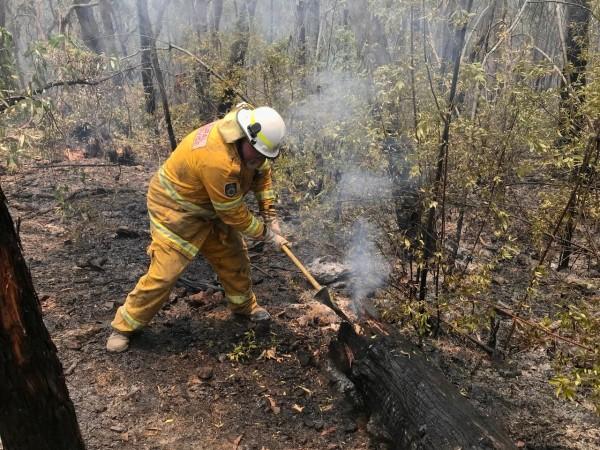Thousands of residents and holidaymakers are evacuating a swathe of Victoria, in Australia's southeast, as soaring temperatures and strong winds fan massive bushfires.
With the mercury set to top 40 degrees Celsius (104 Fahrenheit) in Melbourne, authorities urged an estimated 30,000 tourists to leave East Gippsland, an area half the size of Belgium.
The fire danger is forecast to be extreme in seven of the state's nine districts and threatened to close the Princes Highway, a major road artery in the region.
"Today will be a challenge for emergency services and the community," the state's Emergency Management Commissioner Andrew Crisp said on Monday.
"There is extreme fire weather across the state."

Bushfires have destroyed more than 4 million hectares (9.9 million acres) across the continent since fires started to flare in spring. Eight deaths have been linked to the blazes.
Impact of the bushfires
The warm front will even push temperatures in Australia's southern island state of Tasmania - the country's closest point to Antarctica - higher than in Australia's dry north.
Wholesale power prices in the hottest states - Tasmania, Victoria and South Australia - have soared above A$330 per megawatt-hour (MWh), more than 10 times the prices in New South Wales and Queensland, according to the Australian Energy Market Operator data on Monday.

The prices, paid by power retailers to generators, are largely driven by air conditioner use.
The heat is seeping into New South Wales, the country's most populous state, with temperatures forecast to spike on New Year's Eve as hundreds of thousands gather around the harbour city of Sydney to watch its famous firework celebrations.
There had been fears the fireworks might have to be cancelled, but authorities so far are planning to push ahead with the show.
Fires are also threatening lives and homes in Western Australia, thousands of kilometres away from the country's east, after blazes broke containment lines north of the port city of Albany.
The size and geographical breadth of the fires make it one of the toughest bushfire seasons on record, even though the southern hemisphere summer is not yet at its mid-point.
Bowing to political pressure, the federal government said on Sunday it would compensate volunteer firefighters for loss of income given the intensity of this year's bushfire season.
Prime Minister Scott Morrison said payments of up to A$6,000 ($4,186) would be available for eligible crews who had spent more than 10 days in the field this season.
Morrison returned home early from holidaying in Hawaii ahead of Christmas amid criticism his government was doing too little to address climate change and a country-wide drought.









